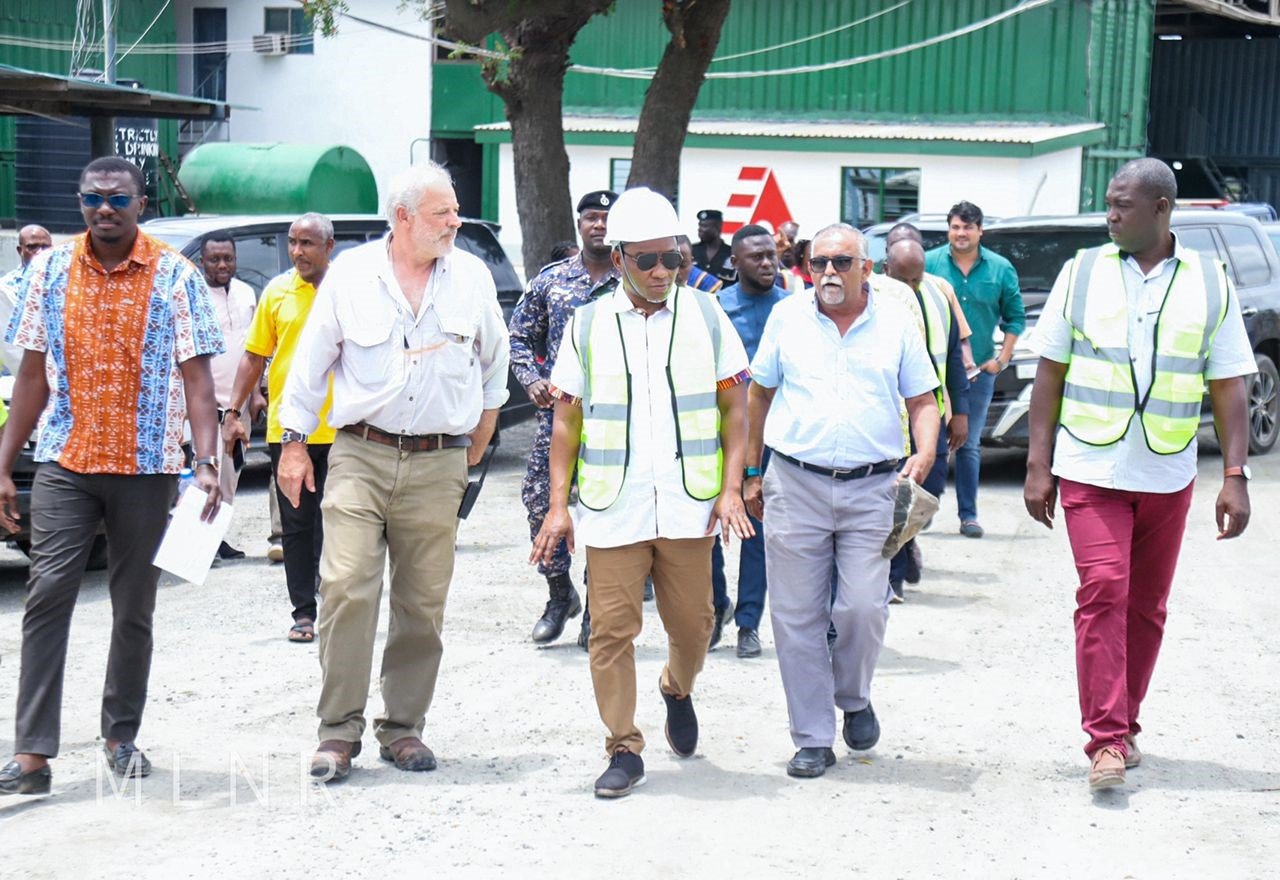
(Right) George Mireku Duker, Deputy Lands Minister, interacting with some personnel at a quarry site

A Deputy Minister of Lands and Natural Resources in charge of Mines, George Mireku Duker, has charged metropolitan, municipal and district assemblies (MMDAs), together with quarry operators, to take urgent steps to protect quarry concessions within their jurisdictions from encroachment.
He said quarries are crucial for national development as they provide materials for constructing roads and other key infrastructure projects.
Mr Mireku Duker gave the charge during a working visit to some selected quarry sites in Shai Osudoku District in the Greater Accra Region yesterday.
There was also a brief forum to allow some members in the quarry operations voice their grievances.
The quarry sites include the Platinum Seal Quarry, Eastern Quarry, Twin Rock Quarry, Gokay Group, HDS Quarry, Generex Quarry, Derby Quarry, Uni Africa, HR Minerals & Mines, Massey Stone Quarry, among others.
Mr Mireku Duker explained that the exercise formed part of a gamut of measures the government was rolling out to protect Ghana’s quarry sector for accelerated development.
Critical role
He stressed that given the critical role quarries play in national development, the lack of respect for regulations relating to quarry operations would no longer be countenanced.
He also said it was unacceptable for some metropolitan, municipal and district assemblies (MMDAs) to issue permits to individuals to put up structures in buffer zones or within quarry concessions, promising that efforts would be made to cure such a systemic challenge.
The Deputy Lands Minister further expressed satisfaction about the quarry sites visited, saying “they have organised concessions and following all the dictates of the law”.
However, he reiterated that in areas where there are genuine complaints of encroachment, particularly involving foreign nationals, his technical officers will do an operational audit and where there are gaps, “we will fill it, and if we find out that they’re not complying, we’ll clamp down the concessions.”
The Deputy Minister also gave the assurance that the establishment of Quarry Development Fund (QDF) in Shai Osudoku will also be worked on in reaping relevant benefits as ongoing in the Ashanti Region to support development.
In resolving the issue of standard pricing, he said his Ministry will call for a meeting but said that “will be dependent on the need to determine a common pricing mechanism acceptable to unions”.
“If all the companies unite under one umbrella and announce specific prices for the stones, the public will adhere to such directive; but when there are different organisations, with competing price variations, the public will have the option of going for the price that suits their budget and demand,” Mr Duker added.
Dealing with encroachment, he called for the collaboration between chiefs, assembly and key actors to tackle the menace head on.
Concerns
Meanwhile, sharing challenges of quarry operations in the Assembly, the District Chief Executive (DCE) for Shai-Osudoku District, Fred Offei Twum, appealed to the Ministry of Lands to ensure that the quarry companies obligate themselves to support infrastructure projects as a matter of social responsibility.
He passionately appealed to the Ministry to replicate the Quarry Development Fund (QDF) in the area and lamented that, for almost a year, plans to come out with the QDF has not yielded any results.
“The QDF is dear to my heart because when it’s in operation, it’ll also help generate funds to engage in other projects and there won’t be no need calling on you for the provision of some of these basic social and essential amenities like roads, schools, hospitals, toilets etc to support the community members,” he said.
The National Chairman of the Commercial Quarry Operators Association (COQOA), Ebenezer Mireku, also expressed concern on high incidents of encroachment on sites licensed for stone quarrying operations, explaining that the operators at such sites had licences and land title deeds from the Lands Commission to operate.
He added that the buffer zones created for quarrying operators seem not to be working, as encroachers had also invaded those ‘danger zones’.






